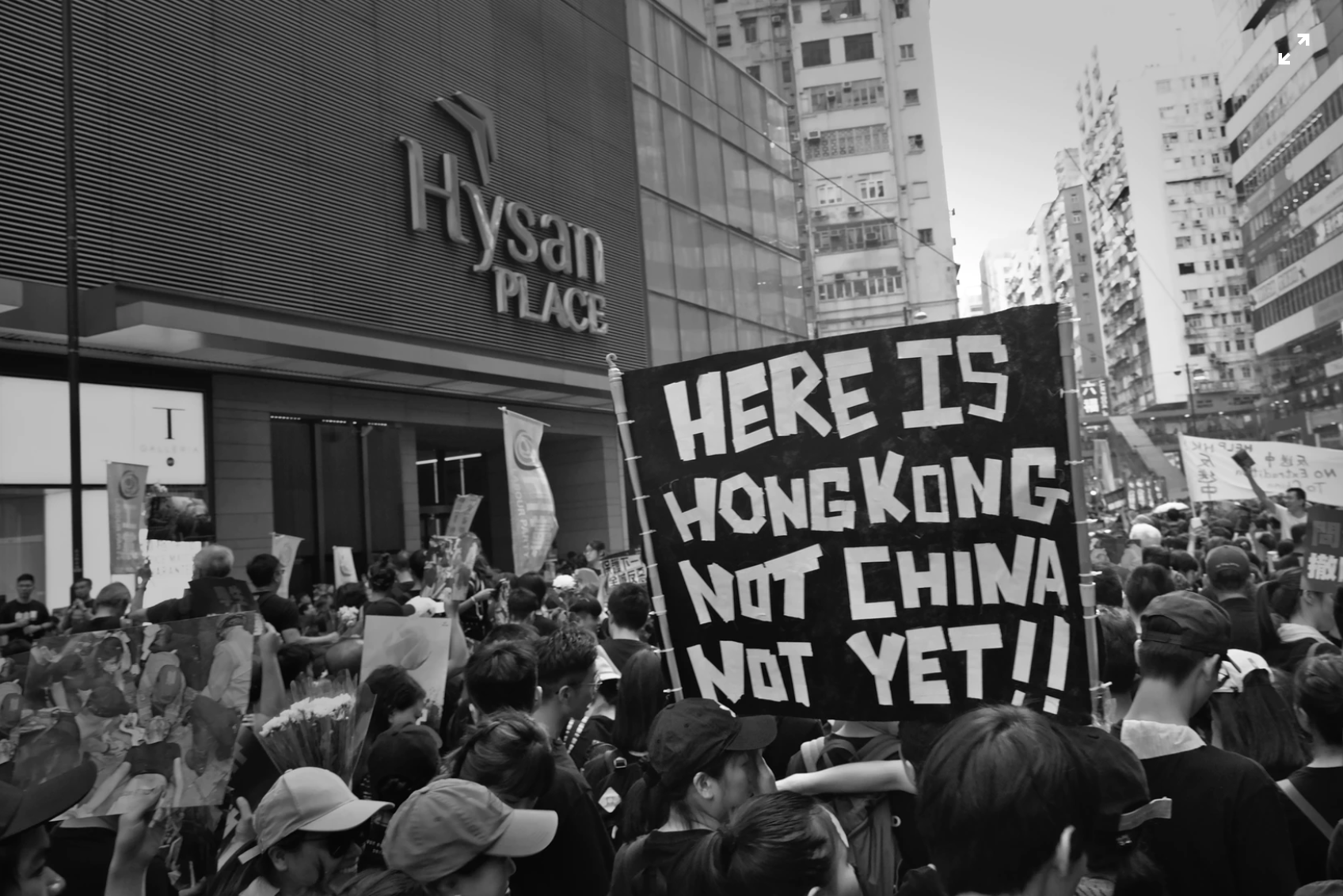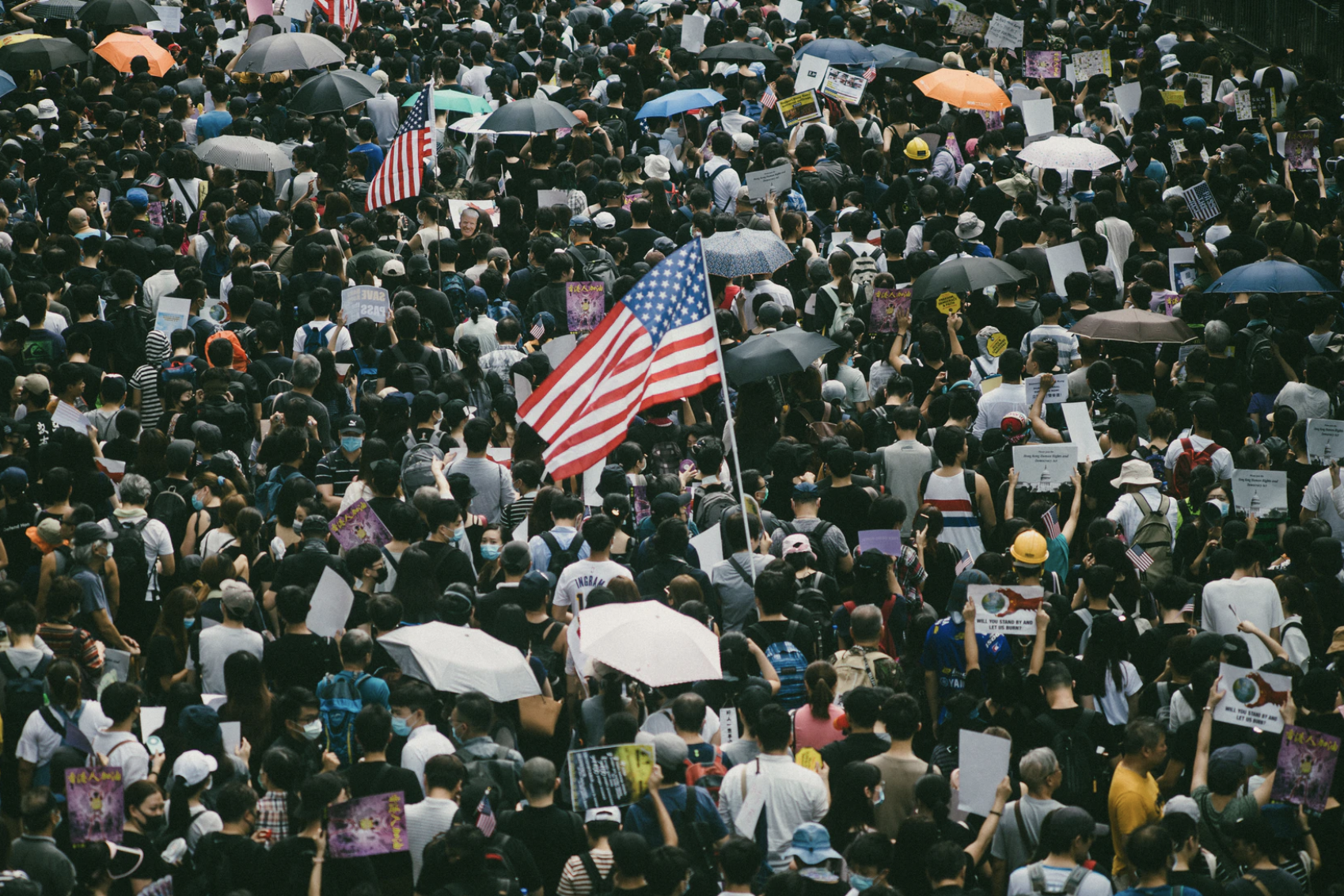Do (or Should) Companies Value ‘Freedom’ over Markets?

After a tense summer of political uncertainty and instability in Hong Kong, China’s assertive campaign to control discourse about its policies has entangled American companies in a debate concerning their commercial priorities and commitment to promoting democratic values. This debate ultimately stems from the decision of many major corporations, ranging from Apple to the NBA, to favour profits over taking a clear stance on the question of Hong Kong’s autonomy. This phenomenon is certainly not new to those wishing to engage with the vast and alluring Chinese market. Traditionally, companies and organizations interested in the Chinese market have willfully avoided the three Ts—Tibet, Tiananmen, and Taiwan. However, under President Xi Jinping, the government has intensified efforts to censor sensitive material both within and outside its borders. Those doing business with China now avoid a wider set of subjects, including the mistreatment of ethnic minorities, particularly Uyghur Muslims, and the Hong Kong demonstrations, which exploded onto the world stage earlier this spring. In deferring to the Chinese government, American companies like Apple, Google, and Blizzard, among others, have shown their total disregard for the Western liberal values of freedom, democracy, and justice. While the world watches as Hong Kong protestors take bold risks in confronting the Chinese state, the silence of these corporations is deafening.

Earlier this month, Apple garnered significant controversy for their decision to pull HKmap.live from the app store. HKmap.live was an app that provided a crowdsourced map to track the Hong Kong Police’s presence throughout the territory. Apple CEO Tim Cook justified the move on account of allegations that the app was being used to “maliciously target individual officers for violence and to victimize individuals and property.” However, the “credible information” that supported this decision has since been revealed to originate from the Hong Kong Crime Bureau, thus raising suspicions over the alleged violations of Apple guidelines. This move follows another decision by Apple to remove an app, Quartz News, at the end of September for containing “illegal content” pertaining to China. However, it should not be surprising that Apple has so far chosen to appease the Chinese government, given that they are one of the few foreign consumer tech giants that have thrived in China. The country is Apple’s third largest market, generating nearly $44 billion dollars in revenue annually; and perhaps even more significantly, Apple’s supply chain is inextricably embedded in the Chinese manufacturing industry. This past Thursday, Tim Cook met with Xiao Yaqing, the director general of the State Administration for Market Regulation, in Beijing to discuss widening investment and development opportunities in China. Even amidst bipartisan criticism, ranging from Rep. Alexandria Ocasio-Cortez to Sen. Ted Cruz, Cook has yet to reassure the American public of Apple’s commitment to upholding human rights and freedom of information. Implicit in Apple’s actions is their refusal, or inability, to forgo business with China, regardless of the moral, political, or social cost.
Apple is certainly not unique in this line of behaviour towards China. Google’s parent company, Alphabet, removed the app The Revolution Of Our Times for “violating company policies.” The app is a role-playing game set within the Hong Kong protests which was downloaded over 1000 times and received a 5-star rating before its removal. Even though Google does not have nearly as great a foothold in the Chinese market, seeing as its platform is banned state-wide, they too have succumbed to political pressures in refraining from supporting the Hong Kong protestors. Google has been trying for years to break into the Chinese market; there were even covert talks last year to build a censored search engine for China, but ultimately put on hold due to outcry from both the public and Google employees. Whether or not the decision to pull the app was prompted by explicit warnings from the Chinese government, this case demonstrates how companies will self-censor to avoid closing the door on enticing prospects in the Chinese economy.
China has consistently been able to leverage its economic muscle to pull international support away from its perceived threats. In the process, Chinese scrutiny has even extended to seemingly apolitical targets. Most notably, Hearthstone, a computer game developed by Blizzard, has recently become another battleground for censorship. Two weeks ago, Blizzard generated public outrage by controversially banning and stripping Ng “Blitzchung” Wai Chung, a professional Hearthstone player from Hong Kong, of his winnings after he mentioned a pro-Hong Kong slogan in a post-tournament interview. Since then, Blizzard seems to have been doubling down on its pro-China policy by banning users on Twitch, a popular streaming website, who are flagged when discussing “sensitive topics,” especially pertaining to the Hong Kong demonstrations.

Corporate America’s recent decisions to appease China have become a key point of contention in the rapidly shifting, and often confusing, American political landscape. The Trump administration has been taking a hardline position on its economic and diplomatic relations with China, a decision that has been felt across the American economy as the trade war drags onto its 16th month. Just this past Thursday, Vice President Mike Pence delivered a speech in which he declared the U.S government’s support for the non-violent pro-democracy protesters in Hong Kong. Pence went so far as to denounce the actions of both the NBA and Nike, stating that the former was “acting like a wholly owned subsidiary of the authoritarian regime.” In a speech given a year after he delivered an address on US policy towards China, dubbed the “iron-curtain speech”, Pence continues to criticize China on the same fronts as before, particularly on their human rights record, their actions in the South China Sea, and their trade practices. However, Pence concluded in his speech that, despite his administration’s confrontational stance on China, the United States sought neither to “decouple” with the country nor to undermine its economic development. This leaves the U.S in a contradictory predicament, especially because US lawmakers are on the verge of passing the Protect Hong Kong Act, which would terminate munition sales to the territory, and most likely work to undercut hopes for a trade deal with Beijing—a matter that will be an essential campaigning point for Trump in the upcoming 2020 elections. While the Vice President vocalized his support for Hong Kong and for corporate America to stand up for free speech, major changes in Sino-American relations will only be made if a consensus in the economic arena is reached first.

This is certainly not the first time that American companies have shown their preference for the free market over free people, and it definitely won’t be the last. Moreover, even though Washington has toughened its policies and views towards China, a nationwide survey in June by the Chicago Council on Global Affairs found that bipartisan support for engaging with China on trade was at a whopping 74%. It is thus important to ask ourselves whether we should expect American businesses to uphold human rights and democratic norms abroad. If liberal democratic values are truly the crowning achievement of the West, U.S inaction in Hong Kong is yet another blatant example of how economic considerations are the fundamental driving force behind American foreign and corporate policies. It has become increasingly clear that a decisive shift in the priorities of powerful state and non-state actors relies on a larger discussion on whether the benefits of engaging with China will outweigh the costs.
Featured image by Joseph Chan, uploaded on August 31st, 2019
Edited by Anthony Kuan
